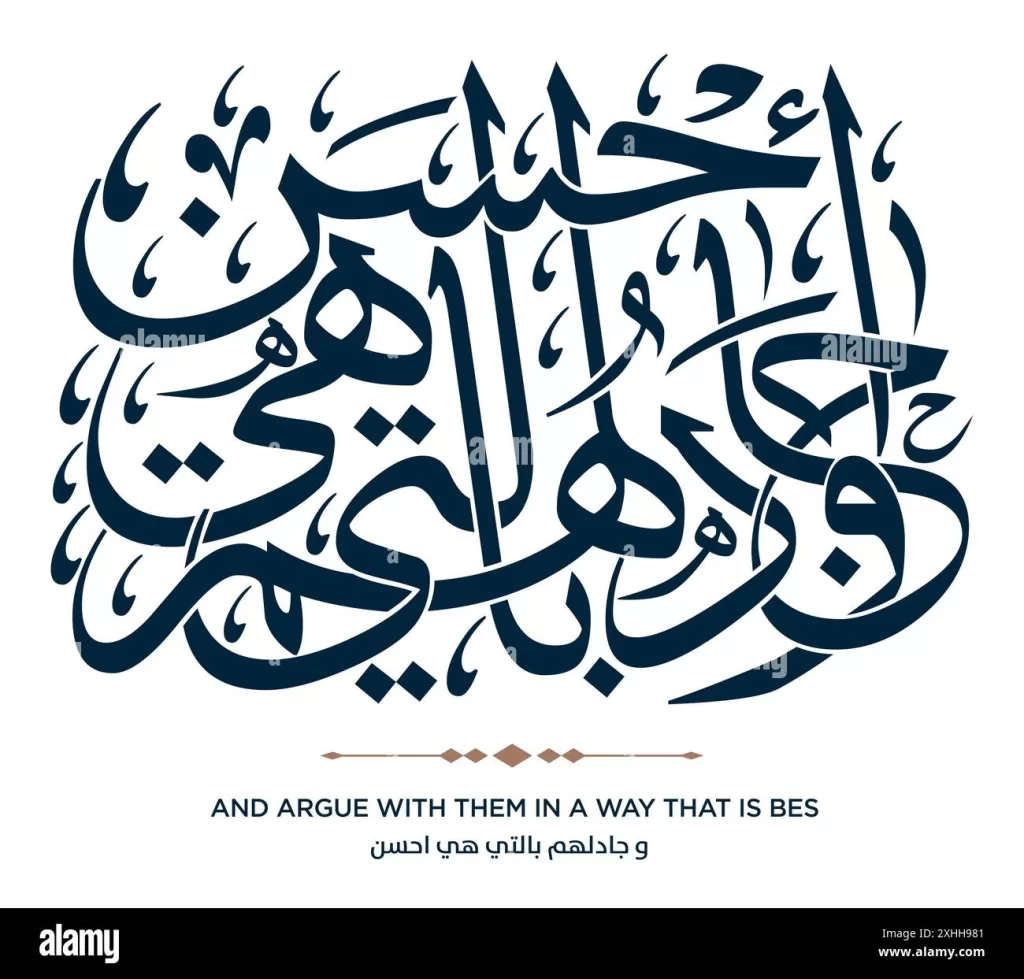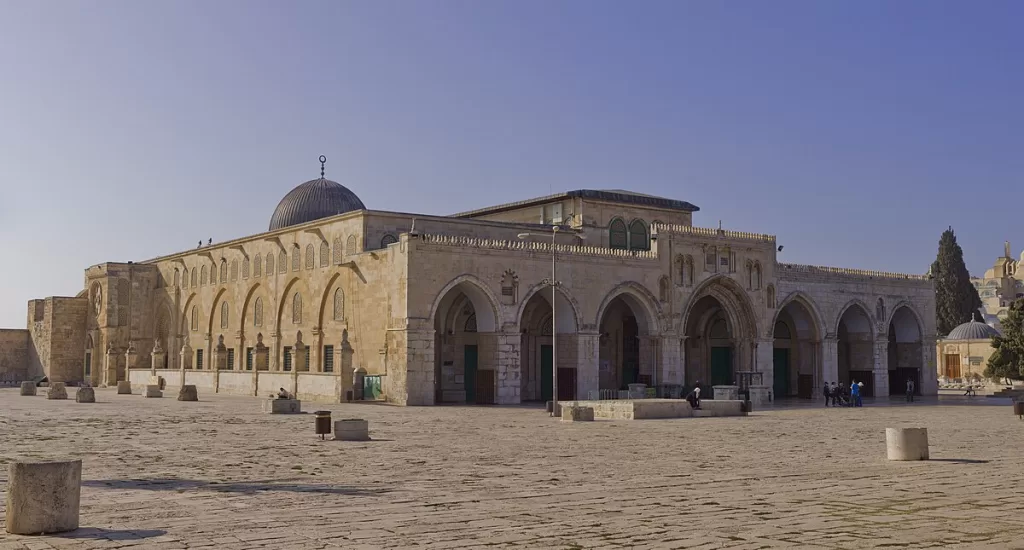Click here for main article.
Click here for Malay version of the post script.
Click here for video talk in Malay with English subtitle.
———————-
Post Script
1. A deep study on Ibn Hazm, a classical Muslim scholar referenced by pro-LGBTQ activists on the permissibility of homosexuality in Islam, discloses the opposite. Although Ibn Hazm may have opined that possessing homosexual tendencies can be a natural trait of a person, he did not use it as a justification to permit homosexuality in Islam. On the contrary, Ibn Hazm stated clearly in his books that homosexuality is forbidden in Islam.[1] This is mentioned by Mobeen Vaid in his article that challenges Scott Kugle’s justification for homosexual relations in Islam.[2] The fact is not challenged by Junaid Jahangir and Hussein Abdullatif who dedicate an article to refute Vaid and defend Kugle.[3]
2. After implicitly acknowledging that Ibn Hazm himself disapproved of homosexual relations when he ruled that the act deserved discretionary punishment (ta`zir), Jahangir and Abdullatif diverted attention to Ibn Hazm’s caution against uncritical taqlid (imitation) of past scholars’ fatwa, implying the need for openness in making new fatwas or changing existing ones when the situation permits.[4] Thus, Kugle’s “progressive” view on permissibility of homosexual relations is in spirit akin to Ibn Hazm’s standpoint. However, Ibn Hazm’s caution on taqlid and encouragement of revising old fatwas in changing times is not unique to him. It is the mainstream view of many scholars of all mazhabs.[5] But the view cannot be used to justify every single new and revised fatwa, including Kugle’s view on homosexuality in Islam in contemporary time. The fatwa must, first and foremost, be based on credible and honest scholarship as highlighted by Mobeen.[6]
3. If the main message of Prophet Lot’s da`wah was not to prohibit homosexual practice in his people, or what is impermissible is the act of rape or force, not the homosexual act itself, he should not offer his daughter to those who came to his house asking for the surrender of his “male guests” to them (11:78, 15:71). Instead, Prophet Lot should merely suggest to them to marry among themselves or to sexually engage with a willing male person.
Pro-LGBTQ activists argue that the verse that speaks about the incident describes Prophet Lot’s suggestion as “at-har” (purer) (11:78), implying that homosexuality is “tahir” (pure). It means that the latter is only better and does not make the former haram (forbidden).[7]
However, this argument can be refuted with the fact that the Qur’an has classified the homosexual act practice by Prophet Lot’s people as “fahishah” (indecency, lewdness, vice, immorality), attributed it to shaitan and declared it as forbidden by Allah (refer to the main text for detailed explanation)
Pro-LGBTQ activists often argue that the interpretation of Qur’anic verses related to homosexuality must be understood and interpreted thematically, not merely based on text and selected individual verses only. A thematic approach refers to the attempt to collate all relevant verses and analyse their interconnections to derive meanings holistically. This is indeed an acceptable approach. In fact, it is already an acceptable method of tafsir among Muslim scholars today. However, the same approach would mean that the right meaning of word “at-har” should first be referred, first and foremost, to the related verses. On this note, the comparison between engaging in marrying Prophet Lot’s daughter and homosexual act with the guest is not between the “at-har” (purer) and “tahir” (pure), but between “at-har” and “fahishah”, because the proper tafsir methodology requires giving priority to the meaning or interpretation that is prominent in other verses above other meanings that lack basis in the Qur’an, or contradict the prominent meaning.[8]
4. The above point could be strengthened further by the same thematic approach to understanding Prophet Lot’s da`wah mission to his people by comparing it with other Prophets mentioned in the Qur’an.
A thematic study would disclose that there is no single verse about Prophet Lot’s da`wah mission in the Qur’an which mentions about him calling the people to worship Allah only (tauhid ubudiyah) and to avoid shirk (polytheism). All the verses concerning Prophet Lot are focused only on his people’s despicable acts which included homosexuality.[9] Muslim scholars have agreed that tauhid has always been the main pillar of Islam and a key message of all Prophets’ da`wah. Prophets may have different shari`ah (5:48, 42:13), but there is absolutely no difference among Prophets on the issue of belief in Allah as the One and Only God.
Pro-LGBTQ activists claim that their thematic approach concludes that Prophet Lot’s people were destroyed because they stubbornly chose their traditional idol-worshipping faith and rejected tauhid, like other destroyed nations mentioned in the Qur’an, not the practice of homosexuality.[10]
However, using the same thematic approach, one can actually question why the Qur’an does not mention about tauhid and the true faith, even in a single verse, like how it was highlighted in Prophets’ da`wah. Instead, the Qur’an keeps repeating its denunciation of the people’s acts. There can be two conclusions to this; a) the adherence to tauhid was not the main problem of the people, or b) the tauhid issue was considered a “given”; in line with the history of all Prophets’ da `wah. Thereon, the focus on the despicable acts which includes homosexuality is to emphasize its deplorability, in line with the verse that says, “abominations such as none in all the world has ever done before you?” (7:80).[11]
5. The Qur’an does not only abhor homosexuality (describing it as “fahishah”) collectively with others abhorrent acts (29:28-9). On the contrary, the Qur’an denounces it singularly (7:80-1). Therefore, argument that the prohibition of homosexuality should be understood collectively with other despicable acts is rejected. Verses that denounce homosexuality collectively with others and singularly must be understood to mean that homosexuality is prohibited singularly (7:80-1) and is more condemned when committed with other despicable acts (29:28-9). This is the interpretation held by Muslim scholars since the classical period, until the emergence of those who seek to change it in the name of “rethinking old ideas for more progressive ones”.[12]
There is no issue in claiming that the severe punishment imposed upon Prophet Lot’s people was due to the collective acts of evil committed by them. However, this cannot be a basis for saying that homosexuality on its own is not an abhorrent thing. Homosexuality alone might not be deserving of a severe punishment; it does not eradicate the fact that it is still a sinful act.
[1]Mobeen Vaid (2016), “Can Islam Accommodate Homosexual Acts? Qur’anic Revisionism and the Case of Scott Kugle”, The American Journal of Islamic Social Sciences 34:3, pp. 73:76; Pergas, pp. 80-2.
[2]Mobeen Vaid (2016), “Can Islam Accommodate Homosexual Acts? Qur’anic Revisionism and the Case of Scott Kugle”, The American Journal of Islamic Social Sciences 34:3, pp. 73:76; Pergas, Religious Guidance on Same-Sex Attraction from the Islamic Perspective, Singapore: Pergas, pp. 80-2. See also, Carl Shariff Al-Tobgui (2022), “Islam and the LGBT Question: Reframing the Narrative”, Yaqeen Institute, 7 October, available at https://yaqeeninstitute.org/read/paper/islam-and-the-lgbt-question-reframing-the-narrative (1 June 2025).
[3]Junaid Jahangir and Hussein Abdullatif (2018), “Homosexuality: The Emerging New Battleground in Islam”, Iran Namag, vol. 3, no. 1, pp. CLV.
[4]Ibid., pp. CXXXVIII-CXLI.
[5]See Yusuf al-Qaradawi (n.d.), “Mujibat Taghayyur Al-Fatwa Fi `Asrina”, Qadhaya ‘Ummah Series no. 1, Saint Denis: Maktab Lajnat Al-Ta’lif Wa Al-Tarjamah, Al-Ittihad Al-`Alami Li `Ulama’ Al-Muslimin.
[6]Mobeen Vaid (2016), pp. 76-7.
[7]Junaid Jahangir and Hussein Abdullatif (2018), “Homosexuality: The Emerging New Battleground in Islam”, Iran Namag, vol. 3, no. 1, pp. CLIII-CLIV.
[8]Pergas (2024), Religious Guidance on Same-Sex Attraction from the Islamic Perspective, Singapore: Pergas, pp. 91-5.
[9]Ibid. pp. 79-80, 83-90; Vaid (2016), pp. 78-84.
[10]Ibid, pp. 71-3; Muhsin Hendricks (2010), “Islamic Texts: A Source for Acceptance of Queer Individuals into Mainstream Muslim Society”, The Equal Rights Review, vol. 5, pp. 37-40; Jahangir and Abdullatif (2018), pp. CL-CLI.
[11]Pergas (2024), pp. 83-90.
[12]Ibid., pp. 91-5.


